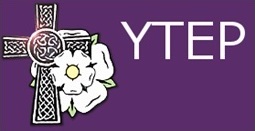.
.
2. Starting as a student
2.1 Admission
The fact that you are reading this handbook normally means that you’ve already been accepted onto a course but if you’d like to find out more about our application, selection and admissions processes, entry qualifications or how to claim Accreditation of Prior Learning (APL), also known as Recognition of Prior Learning (RPL), please see YTEP’s Admissions Policy, a summary of which is provided in Appendix A.
2.2 Registration and student records
Centres collect initial information about you from your application form. They may then supplement this with further details requested when you enrol on your programme. At this stage your Centre sets you up with access to Moodle (see section 2.4 below).
There are three IT systems in which your details are then recorded and stored during your lifetime as a YTEP student:
(a) Your Centre’s local student record system;
(b) YTEP Moodle – this is used primarily to support the delivery of your modules and register you on them with Durham University, and ultimately to process your assessments, their results and your award outcomes.
(c) Durham University’s Banner student record system – this is populated with a limited amount of personal data plus details of your programme (eg. your module selections and results), extracted out of Moodle.
Once you have enrolled at your Centre your basic data are used to populate Durham’s programme registration records. This is done in October if you start in September and in February for January starters. Durham then generates your student Banner ID number, which will be communicated to you via your Centre. Data about the modules you take are passed to Durham in November/February each year, ready for the overarching Common Awards Board of Examiners in Durham to process your marks in the summer/autumn.
Unless you indicate to the contrary when you enrol, we assume that you are happy for your email address to be passed on to Durham University. The University does not generally communicate direct with Common Awards students and plans to use your email address only to invite you to take part in an annual student survey.
2.3 Student ID cards
Each YTEP student, once their Banner ID number has been issued, has the option to submit a portrait photo to obtain a Durham ‘campus’ card, which facilitates access to other universities’ libraries (through ‘SCONUL Access’). This is valid for the whole length of your programme. There is no charge for this card unless you need to have an original one replaced.
Following a hiatus during the COVID-19 pandemic, Durham has reintroduced the issuing of campus cards to Common Awards students. All queries about campus cards should be sent by email to ytep@mirfield.org.uk.
You may wish to apply for an NUS TOTUM card instead of, or in addition to, a Durham campus card, since that is likely to secure a wider range of discounts and benefits. If you do want an NUS card, you should email YTEP with your full name, date of birth, YTEP Centre name and Durham student ID number to request a personal URL from Durham to use to apply online. When it then comes to selecting your place of study you should select Durham Students’ Union from the drop-down menu. You will have to pay for the NUS card, however you will be able to apply for one straightaway whereas you will have to wait until the student records creation process is complete to receive a Durham campus card (in either December or March).
2.4 YTEP Moodle
YTEP uses Moodle not only as a virtual learning environment (VLE) for all its students but also as a general website and as a student records system.
VLE: the core element of Moodle is the module information that it holds – handbooks, teaching schedules, lecture handouts, assessment details, etc. Your Centre will set you up with access to the sections for the modules that you study each year and you will submit your written assessments via ‘Turnitin’, accessed through the Moodle module pages.
General website: the definitive versions of YTEP’s policies and procedures, programme documentation and other reference information are available to all students and staff.
Student records: the data about you held in Moodle is used to generate reports used by Centres, YTEP and Durham University, including your assessment results and any APL credits.
2.5 Information about your programme
For each module you study you will be able to access a Module Handbook. This will normally be online and downloadable from Moodle, or a hard copy will be provided by your module tutor. Each Centre and hub operates its own timetable and the detailed content of teaching sessions for the same module may vary from Centre to Centre and from hub to hub.
